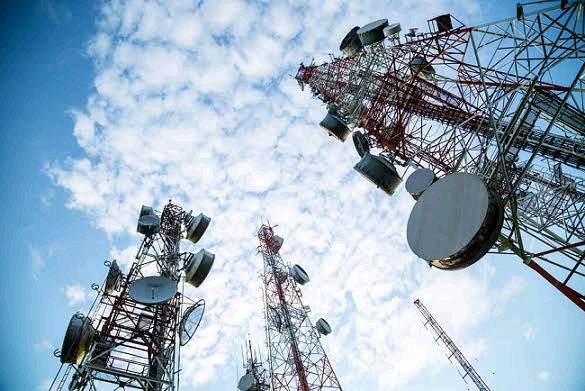The Federal Government has been urged to harmonise right-of-way charges across the country and incentivise local production of telecom equipment to drive broadband expansion and prepare Nigeria for the digital decade.
In a note shared with The PUNCH, telecom analyst Osita Odafi warned that despite major strides in mobile and internet penetration, Nigeria’s telecom infrastructure remains under strain and may not withstand the demands of 5G, smart cities, and AI-driven services without urgent policy reforms.
“Nigeria’s digital future rests on the strength of its networks, but the current system is weighed down by inconsistent RoW charges, power instability, forex volatility, and overdependence on imported equipment,” he said.
According to him, while the Nigerian Communications Commission recommends N145 per meter for RoW, several state governments still demand as much as N10,000 per meter, stalling fibre deployment projects critical to broadband access.
Odafi noted that only 12 states have waived or adopted the NCC rate, while others continue to impose arbitrary charges, sometimes rebranded as “environmental or processing fees,” which telcos say are blocking progress.
He also cited forex challenges and heavy reliance on imported network components as a major cost burden, urging the Central Bank of Nigeria to work with industry players to promote backward integration.
“CBN Governor Olayemi Cardoso’s call for local manufacturing is a good step, but it needs to be backed by tax breaks, funding support, and regulatory certainty,” he added.
Odafi pointed to other structural weaknesses, including high diesel consumption, over 40 million litres per month, as a drain on operators. He welcomed moves by the NCC and the Rural Electrification Agency to support solar energy adoption for telecom sites.
He warned that Nigeria’s 70 per cent broadband penetration target by 2025 may be missed without bold action. “Telecoms are now the backbone of everything from financial services to e-health and e-learning. Without resilient, inclusive, and secure infrastructure, we risk falling behind in the global digital race,” he said.
Odafi also backed stronger protection for fibre optic infrastructure, citing over 50,000 fibre cuts in 2024, 60 per cent of which were linked to government road projects.
He urged the implementation of President Bola Tinubu’s designation of telecoms as Critical National Information Infrastructure to protect assets through community engagement and enforcement.
He further stressed the need for the government to accelerate the deployment of the planned 90,000km fibre backbone and 7,000 rural base stations, saying, “Time is running out. If we want to compete in the global digital economy, infrastructure must come first.”














